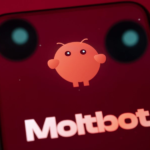OpenAI unveiled a web browser on Tuesday in a bid to make its ChatGPT AI product the starting point for online access and establish itself as central pillar of the internet economy.
ChatGPT Atlas, as the new browser is called, looks and works much like a standard web browser but infuses generative AI capabilities throughout the experience, putting ChatGPT front and center for everything from internet search and e-commerce shopping to email.
“The browser is already where a ton of work and life happens,” OpenAI CEO Sam Altman said in a livestream announcement and demo of the new browser on Tuesday. “We think that by having ChatGPT be a core way to use that… we can take this pretty far.”
OpenAI made Atlas available for computers running the Mac operating system on Tuesday, and said it planned to introduce versions for Windows PCs and for mobile devices in the future.
ChatGPT Atlas represents a threat to Google not only as a web browser, but as a potential alternative to Google’s search engine. The Atlas browser “home page” looks similar to the Google search home page, except that the box at the center of the white page is for interacting with the ChatGPT AI bot rather than the Google search engine. The ChatGPT box serves as both a traditional chatbot that users can talk to, a search engine, and as the browser’s address box, in which users type URL of the web page they wish to visit.
A handful of links directly under the ChatGPT search box list various topics, like trending news items, personalized according to the user’s browsing history and interests.
Among the features in Atlas browser is an Ask GPT button; users can click it and ask the AI bot for additional information or insights relative to whatever web page they’re visiting. (In one example the company showed in the demo, a user could turn to the bot for advice about whether a pair of running shoes on a shopping site would be appropriate for a marathon.) A “memory” feature lets users retrieve a past web page by describing what the page was about.
The Atlas browser will also make it easy for users to set up “agents” that carry out tasks on their behalf, such as ordering the ingredients for a cooking recipe. OpenAI said the agent feature will initially be available only to paying customers of the ChatGPT Plus and Pro versions.
OpenAI’s Altman said Tuesday that web browsers had not seen significant innovation since the introduction of tabs, a feature that dates back to the early 2000s.
During the demo on Tuesday, OpenAI staffers acknowledged the security risks that come with new features such as “agentic” capabilities, which essentially hand over control of the browser to ChatGPT. OpenAI said it had built in various safeguards, including the ability to use the browser without letting the agent be logged in, and noted that the ChatGPT agent can only access data within the browser, not files on a user’s PC.
Update: This story has been updated to include more details from the launch.









